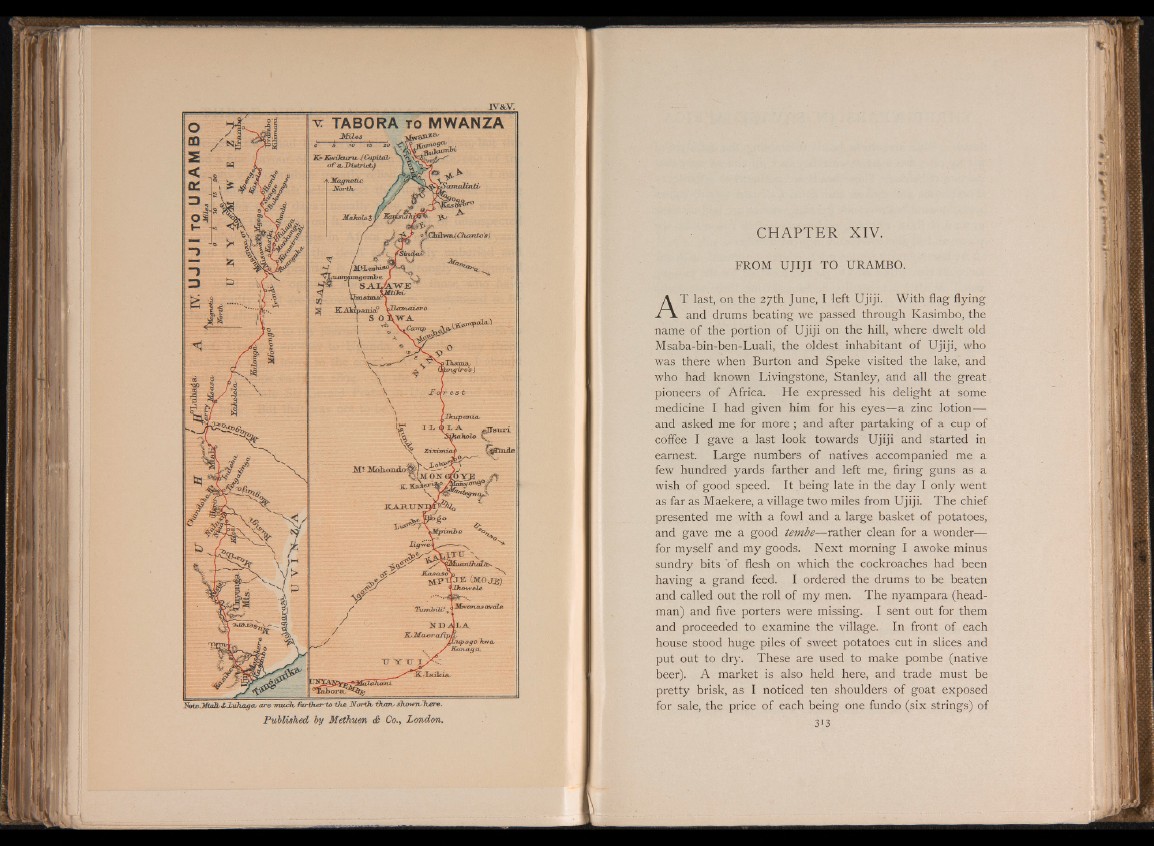
jy&v:
v TABORA to MWANZA Milas
T&Eiw ikiarusjLafitjab
JjQnhva/ Ctuvnto's)
Camp
Thami). fcm^xroisj
MV Moi.ond.o
iifeijTT m m
j^ulsta Ps0'^q3 J® (MOje^) vJJuywele
■■7.i'7x‘* d-Mwaruiaavale
Quupogo k
KcarvagcL
o f a/D istricts
2£akob>ty Xpp*1
(It-Lup cavicL
I I t ®¿¿Ik Aah olo ^€TsTlld.
Turnbili!
N DA LA
T&McueraJrpK,
U x TJ 1 /—.
.IsikieL,
vtt«» WKnde
iT ofceJftflitJrZiuh/ujas are -muck iurOierto Hue North/ thaiu shomuhere.
Published by Methuen & Co., London.
9U9J3
C H A P T E R XIV.
FROM UJIJI TO URAMBO.
A T last, on the 27th June, I left Ujiji. With flag flying
d \ - and drums beating we passed through Kasimbo, the
name of the portion of Ujiji on the hill, where dwelt old
Msaba-bin-ben-Luali, the oldest inhabitant of Ujiji, who
was there when Burton and Speke visited the lake, and
who had known Livingstone, Stanley, and all the great
pioneers of Africa. He expressed his delight at some
medicine I had given him for his eyes—a zinc lotion—
and asked me for more ; and after partaking of a cup of
coffee I gave a last look towards Ujiji and started in
earnest. Large numbers of natives accompanied me a
few hundred yards farther and left me, firing guns as a
wish of good speed. It being late in the day I only went
as far as Maekere, a village two miles from Ujiji. The chief
presented me with a fowl and a large basket of potatoes,
and gave me a good tembe—rather clean for a wonder—
for myself and my goods. Next morning I awoke minus
sundry bits of flesh on which the cockroaches had been
having a grand feed. I ordered the drums to be beaten
and called out the roll of my men. The nyampara (headman)
and five porters were missing. I sent out for them
and proceeded to examine the village. In front of each
house stood huge piles of sweet potatoes cut in slices and
put out to dry. These are used to make pombe (native
beer). A market is also held here, and trade must be
pretty brisk, as I noticed ten shoulders of goat exposed
for sale, the price of each being one fundo (six strings) of